Developmental Project 1
“Gait Velocity Detection Device for Targeted Recruitment in Geriatric Clinic”
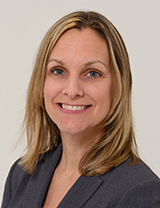
Project Lead
Lisa Barry, Ph.D.
Dr. Barry is a chronic disease epidemiologist and Associate Professor of Psychiatry at the UConn School of Medicine and the UConn Center on Aging. Her research interests include the interface between mental health and functional disability in older persons, and the relationship among mental health, physical function, and cognition in older incarcerated individuals or those transitioning from incarceration to the community in later life. Dr. Barry has received research funding from NIA, NIMH, and foundations including the Donaghue Foundation and the American Foundation for Suicide Prevention. Dr. Barry received a M.P.H. (1998) and Ph.D. (2004) in Epidemiology and Public Health from Yale University where she also completed a postdoctoral fellowship in Geriatric Clinical Epidemiology and Aging-related Research. Prior to joining the UConn School of Medicine faculty in 2011, Dr. Barry was an Assistant Professor in the Yale Department of Internal Medicine, Section of Geriatrics.
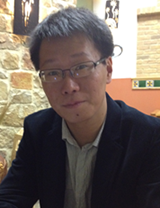
Co-Investigator
Song Han, Ph.D.
Song Han is an Associate Professor and Castleman Term Professor in Engineering Innovation in the Department of Computer Science & Engineering at UConn. He received the B.S. degree in computer science from Nanjing University in 2003, the M.Phil. degree in computer science from the City University of Hong Kong, and the Ph.D. degree in computer science from the University of Texas at Austin in 2012. His research interests include smart health, industrial IoT systems, cyber-physical systems, real-time and embedded systems, and wireless networks. He is currently an Associate Editor for ACM Transactions on Cyber-Physical Systems (TCPS) and an executive member for ACM Special Interest Group on Embedded Systems (SIGBED).
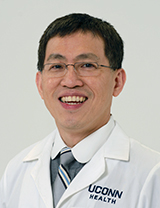
Co-Investigator
Jatupol Kositsawat, M.D., D.M.Sc., M.P.H.
Dr. Kositsawat is a board-certified geriatrician who graduated from Chulalongkorn University and the University of Tokyo School of Medicine. Following an internal medicine residency at the University of Arizona, he completed a geriatric medicine fellowship and obtained a M.P.H. degree at the University of Illinois at Chicago. Dr. Kositsawat’s clinical and research interests lie in strategies for improving muscle and bone health in late life, with a particular emphasis on individuals with cognitive deficits. He has published on the role of nutritional factors and disorders such as diabetes mellitus in declines involving mobility performance. Dr. Kositsawat’s is particularly interested in lifestyle and behavioral factors (integrative and personalized approach) including nutritional, mind, acupuncture or exercise intervention to improve muscle and bone health, a key factor in achieving mobility independence.
Developmental Project 2
Year 1: “Analysis of scRNASeq data from metformin flu vaccine study”
Year 2: “Analysis of scRNASeq data from HVAC pilot cohort; integration with frailty and mobility measures”
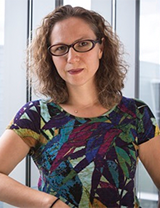
Co-Project Lead
Duygu Ucar, Ph.D.
Associate Professor
Jackson Laboratory
Email: duygu.ucar@jax.org
Duygu Ucar has a Ph.D. in Computer Science from Ohio State University. She has interdisciplinary training in computer science, epigenomics, and the biology of aging. Dr. Ucar’s work includes the development of computational models using genome datasets to study gene regulation and identify hypotheses genomic medicine.
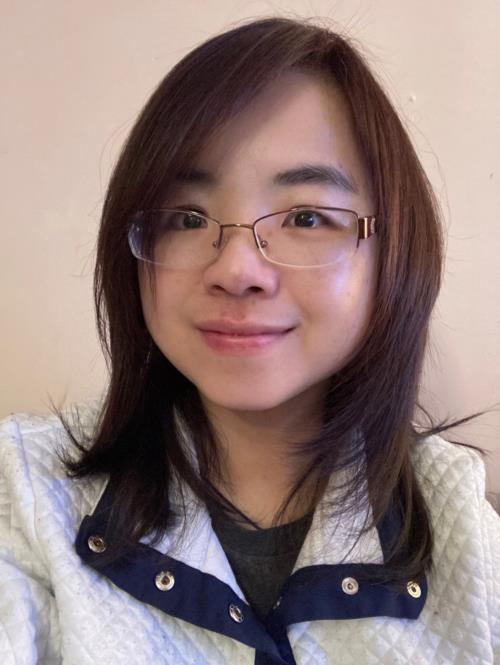
Co-Project Lead
Chai-Ling Kuo, Ph.D.
Senior Biostatistician
Assistant Professor
Email: kuo@uchc.edu
Chia-Ling Kuo, Ph.D., is an associate professor at the University of Connecticut (UConn) School of Medicine, where she is a core faculty member at the UConn Connecticut Convergence Institute. Her academic home is in the Department of Public Health Sciences. Dr. Kuo’s research is focused on genetics of human aging. Dr. Kuo developed methods for applications in pharmacogenetics and genome-wide association studies. She also conducted research to identify genetic variants associated with aging phenotypes, and evaluated exposure-outcome relationships using genetics-based causal inference methods. Her research has been supported by the National Institute on Aging and National Institute of Nursing Research. The topics include 1) identifying potentially modifiable exposures to improve telomere health and disease outcomes; 2) understanding the role of ApoE2 in longevity and age-related diseases and conditions using 500,000 UK Biobank participants. Dr. Kuo received her doctoral degree in biostatistics from University of Pittsburgh, specializing in genetic epidemiology and pharmacogenetics.
Developmental Project 3
Year 1: “scRNASeq data generation using samples from metformin flu vaccine study”
Year 2: “scRNASeq data generation using samples from HVAC pilot cohort”
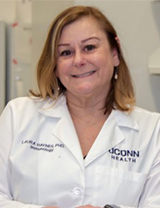
Co-Project Lead
Laura Haynes, Ph.D.
Professor
Dr. Haynes is a professor at the University of Connecticut School of Medicine. She is a core faculty member in the UConn Center on Aging and also holds an appointment in the Department of Immunology. She has over 25 years’ experience studying how aging impacts adaptive immune responses, including the response to vaccinations and infections. Her pioneering work described intrinsic age-related changes in CD4 helper T cells and she has now gone on the study how the extrinsic aging/senescent environment impacts immunity. In addition, she has also expanded her studies to examine how aging and influenza infection impact skeletal muscle gene expression and physical function parameters in order to understand why older adults often exhibit decreased mobility following influenza infection. Her work has been funded continuously by NIH (NIA and NIAID) since her first faculty appointment. In addition to her research, Dr. Haynes is the leader of the Center on Aging Biomarkers Core and has worked with other investigators (both basic science and clinical faculty) to obtain samples or sample analyses for their studies.
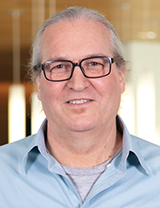
Paul Robson, Ph.D.
Associate Professor
The Jackson Laboratory
Email: paul.robson@jax.org
Dr. Robson received his Ph.D. (Biochemistroy) from the University of Toronto and did his research at the Hospital for Sick Children. After postdoctoral studies at the Children’s Hospital of Philadelphia he established his research lab at the Genome Institute of Singapore. He began implementing single cell technologies in 2008 to understand the molecular control of cell fate decisions in early embryonic development. Now as the Director of the Single Cell Biology Laboratory at The Jackson Laboratory, Dr. Robson oversees the development, testing and implementation of single cell technologies relevant to research programs at JAX and the University of Connecticut. Dr. Robson utilizes single cell and spatial mapping tools to define senescent cells in aging human and mouse tissues in his role as PI on SenNet Tissue Mapping Center grants (NIH Common Fund). He also has specific interests in early embryonic development, in vitro modeling of human implantation, and how the biology at this stage may provide insight into and/or impact later in life biology (e.g., aging) through the pleiotropic effects of genes undergoing natural selection at these early post fertilization stages.